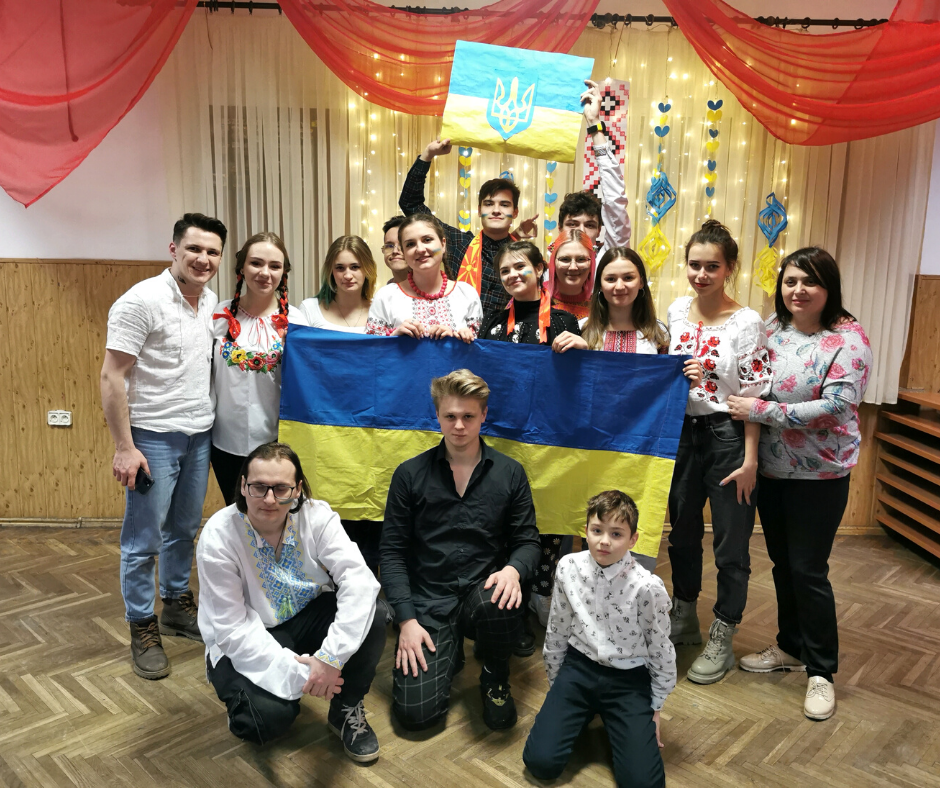Two students of the Educational and Research Institute of Information Technology and Robotics – Anna Obikhod (academic group 301TK) and Marat Khakimov (academic group 202TN) were selected for the international youth exchange project under the Erasmus+ programme. Partakers were offered master classes in digital literacy, art therapy classes, discussions and screenings of thematic documentaries, acquaintances with each other and educational tours.
The project started a few days before the war in Ukraine and it could not but affect all participants.
“Together with the Fundacja “Inicjatywa”, young people from Ukraine initiated assistance to our compatriots who stood on the Polish border for several days with small children – coordinated their arrivals, settlements, provided basic necessities brought by Poles. There were a lot of people who needed help, especially in the first days. Most were alarmed, confused and tired. The unity of Poles, their determination and speed in reacting to the situation, readiness to bring from the border, feed, shelter is impressive, for which we are very grateful to the Polish people,” – said coordinator Nataliia Trykash.
The project was organized by Fundacja “Inicjatywa” (Poland), which presented its experience in the field of hippotherapy as a method of physical and psychological rehabilitation. The organization conducts trainings on volunteering for young people with disabilities and classes on the study of modern computer technology, unites the community around socially important topics aimed at including people with disabilities in the life of the local community. The partner from Ukraine was the NGO “Center for Culture and Development "Horizon”, which has extensive experience in the field of youth work through non-formal education.
The exchange took place in the picturesque Bieszczady – a wonderful place in Poland, right on the border with Ukraine and Slovakia. Nearby is a huge dam with a hydroelectric power plant and the largest artificial lake in Poland (Lake Solina). It is a very ecological and attractive place where tourists from all over Europe come. There is also a small dam and a lake in the vicinity of the center where the international exchange took place. The perfect place to relax after master classes, jogging, Nordic walking or casual walks. In the range of 10-40 km are the highest peaks of Bieszczady with spectacular views of Poland.
During the exchange, partakers talked and discussed a lot about inclusion and stereotypes that exist in society. Leaders of the partner organization World of Change (Northern Macedonia) spoke about how their NGO attracts young people and in what areas they work.
Each group prepared for the discussion “A world without barriers – is it possible?” The young people discussed what accessibility looks like in the countries they came from. Participants shared their observations on why accessibility is so important and how it is implemented in practice. As it turned out, this issue is common to all countries.
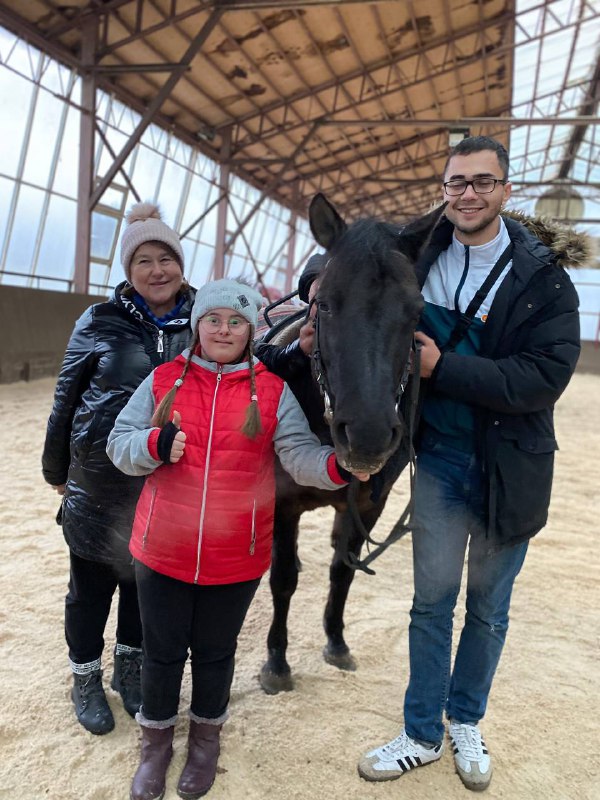
Within the framework of the project there were master classes on hippotherapy from instructors, on the Polish side – Olena Haran, Yahoda Stui and Nataliia Vynnyk on the Ukrainian side. For the first time, the participants visited the stable on the territory of the center, where they learned about the safety rules next to the horse and while riding. This helped to establish the first contact with the animal, which is very important at the stage of acquaintance. Then began the theoretical part, where participants learned the basics of hippotherapy and had the opportunity to sit on the horse to understand the dynamics and feel the connection with the horse. Partakers were introduced not only to the basics of hippotherapy and the mechanism of interaction between horse and client, but also were told a little more about the biomechanics of both humans and animals-doctors.


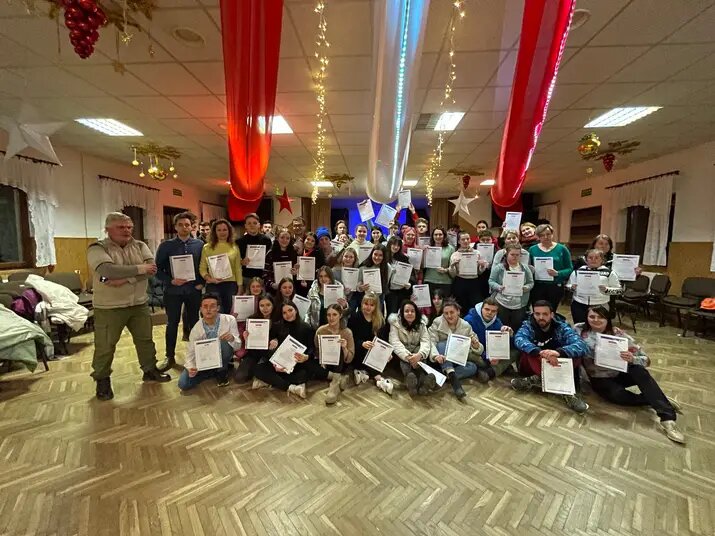
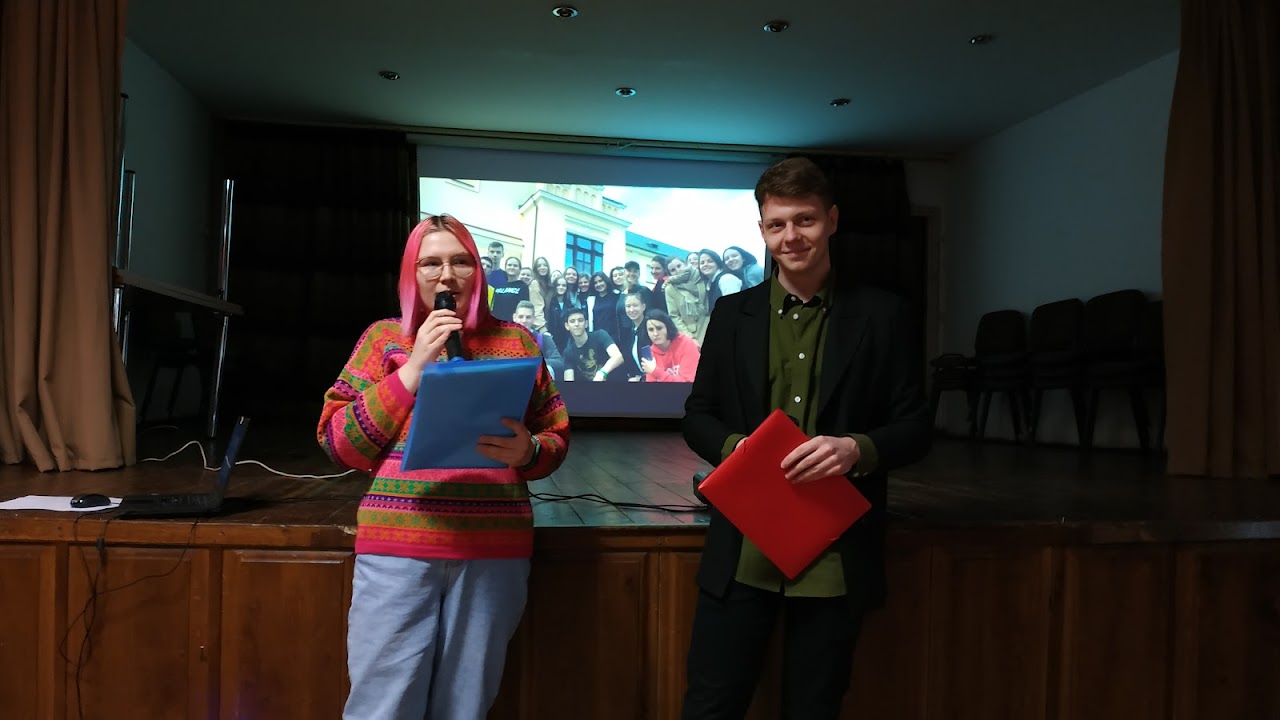
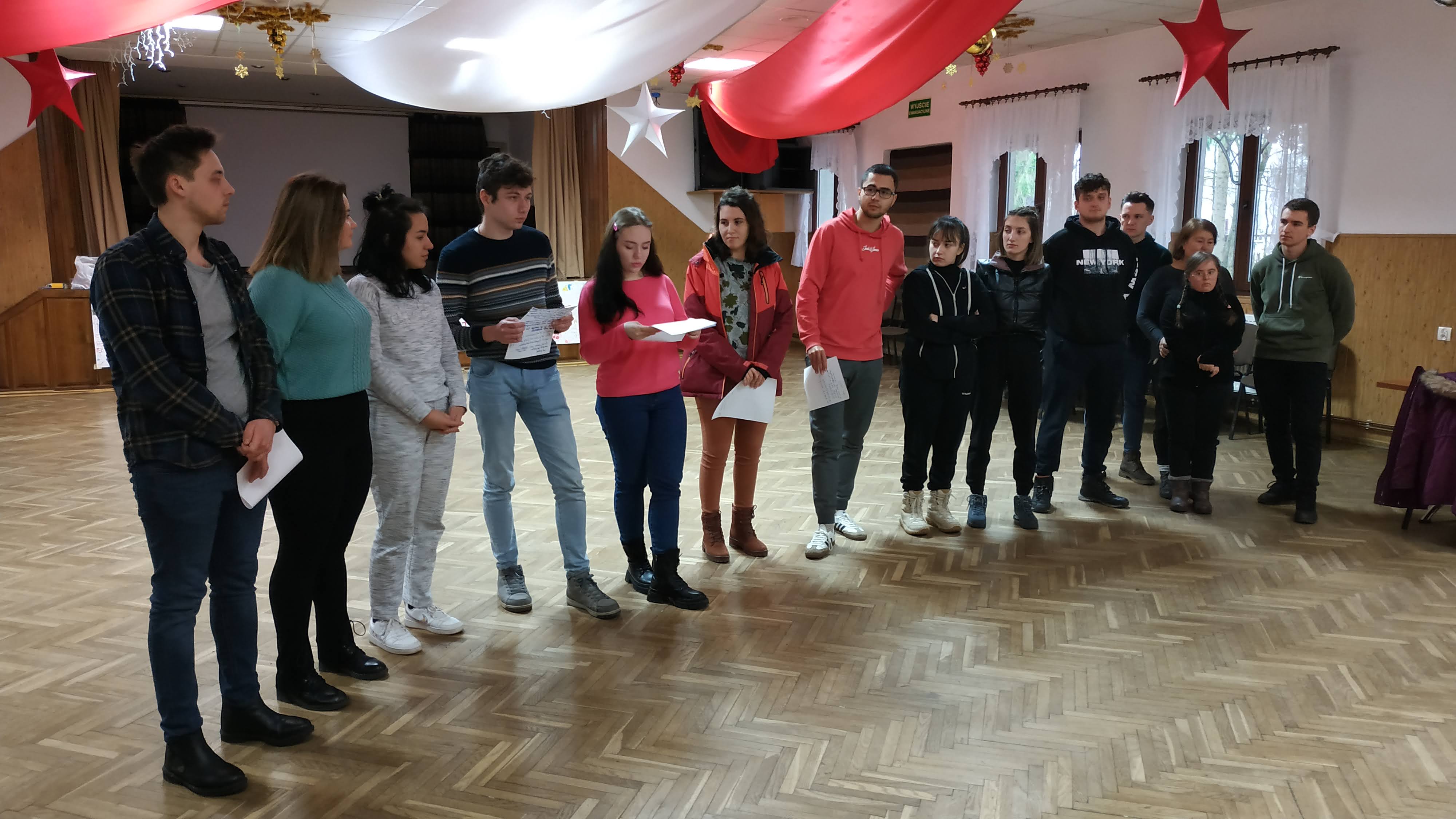
During the exchange, participants talked and discussed a lot about digital dependence, discussed the conscious use of the Internet, promoting the use of the Internet as a source of education and self-development, as well as opportunities for cooperation, mutual assistance and support. It turned out that the online behavior of different countries has much in common. In particular, the dissemination of unverified information or endless repetitions of alike posts. In the end, everyone decided to think about the amount of time they spend online. Accessibility Coordinator Malgorzata Matelowska spoke about the right to accessibility, groups of users who are subject to digital exclusion, and what should the accessibility of websites for the blind, people with disabilities, the elderly be like.
Getting acquainted with the culture and nature of Poland, the young people visited three tourist locations and the Museum of Folk Architecture in Sanok – the largest of its kind in Poland, with more than 150 wooden buildings on an area of 38 hectares and ethnographic park, which is a joint settlement different ethnic groups, namely: Poles, Ukrainians, Germans and others, and which is an extremely important collection of exhibits in the field of folk culture.
The first location was the museum “Museum of the mill in Ustrzyki Dolne”. The museum is located in the building of the former mill, which was built in 1905. The museum is the only place in Poland where you can get acquainted with the full cycle of cleaning and grinding grain in modern mills. Participants listened to a short lecture and got acquainted with the history of the mill and followed the complex process of grinding grain.
The second location was Bieszczady National Park, where participants enjoyed walks in the woods, watched a herd of bison and learned more about their lives. Bison belong to the group of endangered and fully protected animals. There are about 1,200 bison in Poland, a quarter of Europe’s population. Bison were destroyed during the First World War. Before its beginning, 727 animals lived in Belovezhskaya Pushcha. During their existence, bison have been victims of the military and poachers. The last bison in the forest died in 1919.
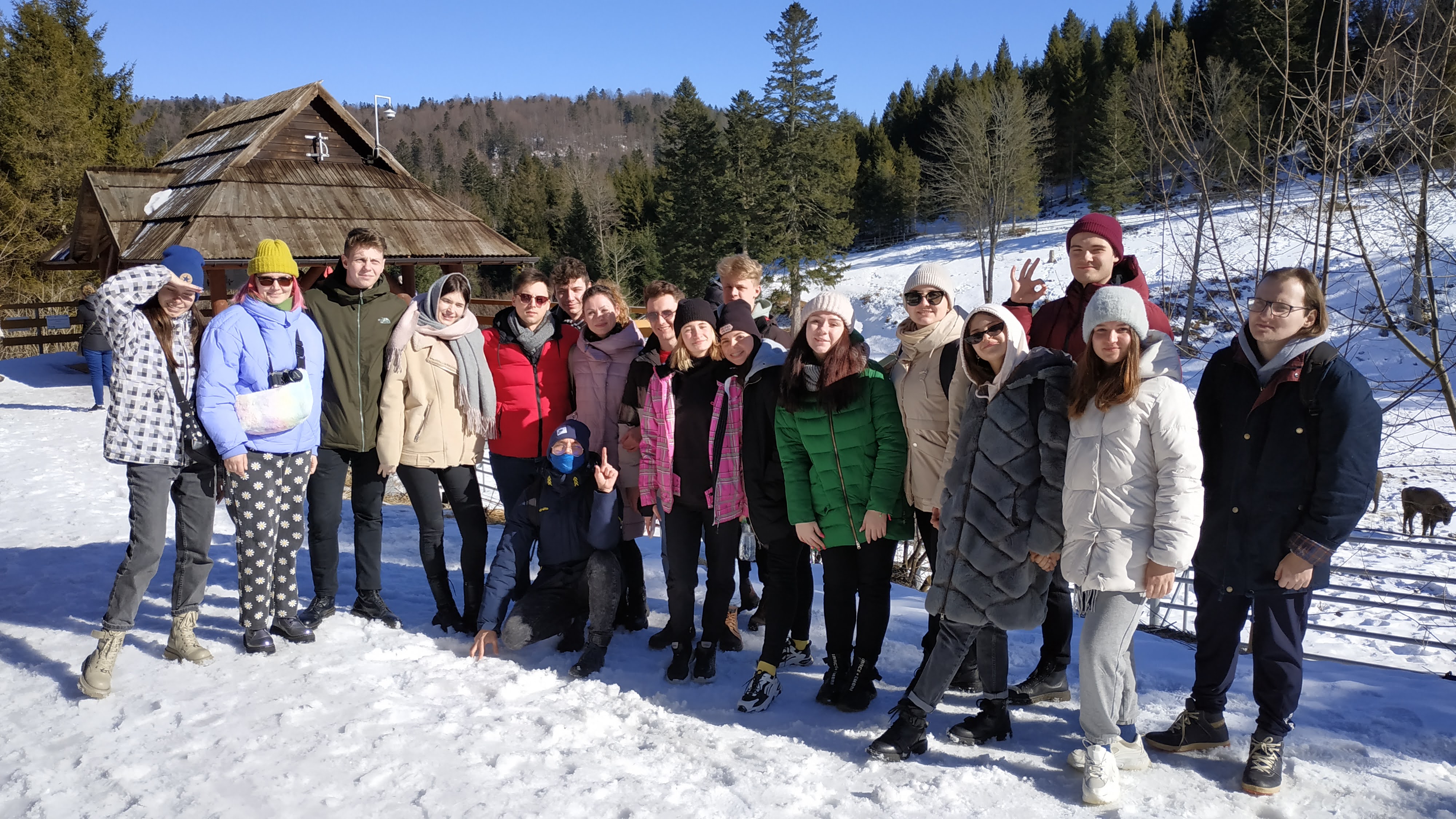
The third and last location was Bieszczady, the mountains of Poland, Slovakia and Ukraine, part of the Eastern Carpathians (Eastern Beskids). Bieszczady are relatively low mountains. They are not difficult to climb on even for not very prepared travelers, so the participants had the opportunity to climb the mountain and enjoy the view from the height of the wooden tower.
It should be recalled that six polytechnic students became participants in the Polish SPINAKER scholarship program from NAWA, and a philology student became a participant in the Erasmus+ project for youth leaders in Greece.
Media Center of
National University “Yuri Kondratyuk Poltava Polytechnic”
